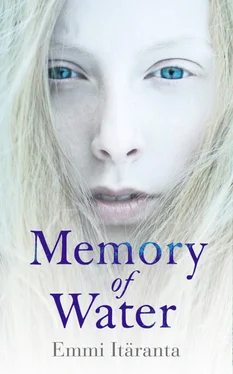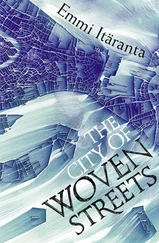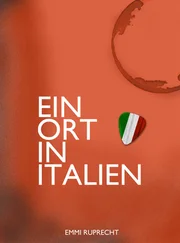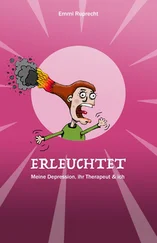I stopped in my tracks when I saw it.
A dark and narrow figure stood at the edge of the rock garden, by the tea plants, and waited.
My flesh and bones were stony and tight around my heart, and I couldn’t bring myself to take another step.
The figure turned around and walked away, until it had disappeared behind the tea plants. The branches moved for a moment where it had brushed them in passing, and then they were silent and still.
With heavy limbs I ran into the house.
There was no light or movement in the blaze lantern hanging from the entrance ceiling, and it took a while before my eyes got used to the half-light.
My father was lying on the floor, his face twisted with pain and his breathing laboured. There was a broken waterskin next to him. The water had spread into a puddle on the floor and wet my father’s clothes.
‘What happened?’ I asked him and tried to help him up. With great difficulty, he got to his feet, but he couldn’t stand straight.
‘Nothing,’ he said. ‘I’m just a little tired.’
‘I’m going to call the doctor,’ I said.
I walked him into my parents’ bedroom and put him under the covers. After a moment he grew restless.
‘I need to get some water from the kitchen,’ he said. ‘My mouth is dry.’
‘I’ll get you water,’ I told him, but he insisted on getting up and walking to the kitchen and pouring himself a cup of water.
It was the last time I saw my father get out of bed without help.
PART TWO
The Silent Space
‘Not one grain of sand stirs without a shift in the shape of the universe: change one thing, and you will change everything.’
Wei Wulong, ‘The Path of Tea’ 7th century of Old Qian time
We are children of water, and water is death’s close companion. The two cannot be separated from us, for we are made of the versatility of water and the closeness of death. They go together always, in the world and in us, and the time will come when our water runs dry.
This is how it happens:
Earth settles where water was, takes its place on human skin or on a green leaf sprouting from sand, and spreads like dust. The leaf, the skin, the fur of an animal slowly takes the shape and colour of earth, until it’s impossible to tell where one ends and the other begins.
Dry and dead things become earth.
Earth becomes dry and dead things.
Most of the soil we walk on once grew and breathed, and once it had the shape of the living, long ago. One day someone who doesn’t remember us will walk on our skin and flesh and bones, on the dust that remains of us.
The only thing that separates us from dust is water, and water cannot be held in one place. It will slip through our fingers and through our pores and through our bodies, and the more shrivelled we become, the more anxious it is to leave us.
When the water runs dry, we are of earth alone.
I chose the place at the edge of the rock garden, under the tea plants. The sky was covered in clouds, and the thin grey light weighed on the winter-worn grass like sea on underwater landscape. It bent my bones and tilted the ground towards me. I thought of the silence of the earth, but air and water flowed under my skin still, and I had to make use of the brief daylight hours while they lasted.
I took off my coat, placed it next to the shovel and picked up the hoe.
I was careful not to damage the roots of the tea plants. I hoed and shovelled until my muscles ached and my mouth was dry. When the first blazeflies began to glow in the gooseberry bushes, the hole at my feet was large enough.
I washed myself in the bathroom with cold water and picked up the message my mother had left on the message-pod. Her voice was swollen with sorrow.
‘I’ve had no news from the visa office,’ she said. ‘All railway connections between Xinjing and Ural are still suspended, and no one’s allowed to travel further than the nearby villages. Noria, the only thing I can do is try to arrange a ticket and visa for you to come here once the connections resume. I only hope I can find a safe way to send them to you. I’d give anything to be there with you.’ There was a pause. I heard her breathing. ‘Please send me a message to let me know how you are,’ she added in a broken voice.
The pod beeped and went quiet.
I listened to the message again and then twice more. I knew I should choose her name from the list and talk to her, but my mouth was so full of silence there was no room for words. Eventually I pressed the green button. Recording , the screen announced.
‘I’m okay,’ I said and tried to make it sound true. ‘I’ll write to you tomorrow.’
I sent the recording and placed the message-pod back on the wall rack.
I went to bed and stared at the darkness until I could see the outlines of the furniture in the faint light of night turning to dawn.
When I eventually got up and went to the veranda, I couldn’t tell if the weather was unusually cold or if I was just feeling shivery because I hadn’t slept. I came back to my room and put on the thickest coat, trousers and shawl I could find, and pulled two pairs of socks on my feet before slipping on the sandals. On the way out my eyes fell on my father’s insect hood that rested folded flat and wrapped in protective fabric on the shelf at the entrance next to my own. I picked it up, took it to my mother’s study and closed the door.
The guests began to arrive around ten o’clock in the morning. The first were plasticsmith Jukara with his wife Ninia and sister Tamara, and Major Bolin with his helicarriage driver. Soon after them four tea masters who had been acquaintances of my father greeted me at the gate, followed by some cousins and second cousins of his from the nearby villages. I had had to compile the guest list partly by guesswork, because my mother’s family was from near New Piterburg, and she had no siblings or cousins this far north. My father had barely kept in touch with any family members of his. I couldn’t remember meeting most of his relatives more than once or twice as a child, when we had attended someone’s wedding or name-giving, where my father had been asked to perform a tea ceremony. These people were strange to me; we had no memories or words in common. I was alone among them.
The three lament-women of the village approached through the trees. They looked exactly the same as I remembered they always had. As a child I had been afraid of them. They wore loose, dark garments and their heads were covered with scarves, and expressions on their wrinkled faces changed like tides. Some people claimed they saw things that others couldn’t see. They spoke little, and followed death wherever it went, and when they lamented, stones seemed to ache around them.
I couldn’t remember inviting them, but I did not turn them away. Someone must weep on a day like this, I thought, and I had nothing but numb silence in me.
Sanja and her father Jan were the last to arrive. Sanja hugged me, and I was certain she could feel me shaking against her.
‘Mum had to stay at home. Minja’s not well,’ she whispered quickly before withdrawing from me and continuing with Jan to the garden where the other guests were already standing around the grave and the coffin. I closed the gate and followed in their footsteps.
The bamboo coffin rested on a stone bench where the men from the burial office had placed it the day before, and at the end of the bench stood the water urn. The coffin still looked too small to me. It was barely larger than the hearth in the teahouse floor, and I thought, not for the first time, of how fleeting death was, how impossible to grasp and see and understand. My father was not here, not in the coffin or in the urn. They held mere matter his spirit had been bound to, and he no longer belonged to it more than light belongs to a faded flower that it once made grow.
Читать дальше
Конец ознакомительного отрывка
Купить книгу












